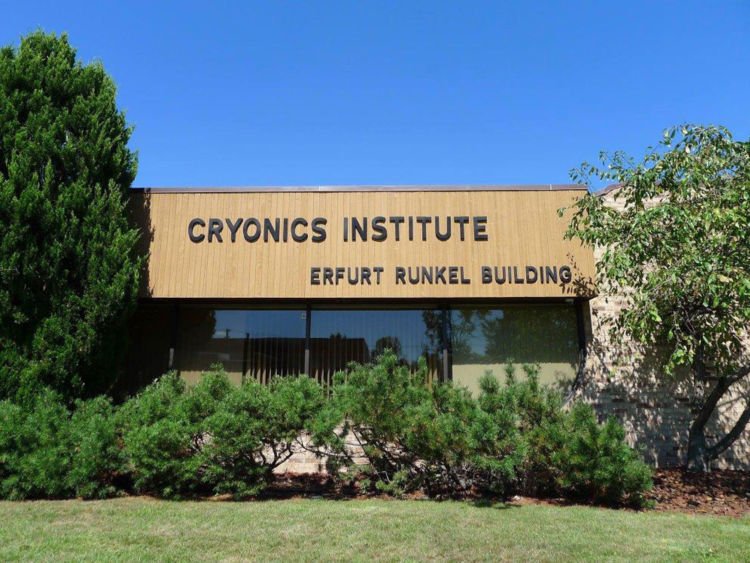Teenage girl won right to be frozen after dying from cancer
Updated | By AFP
A terminally ill girl won a historic legal fight to have her body cryogenically frozen in the hope of being brought back to life.

The 14-year-old, described as a "bright, intelligent young person", had her wish granted shortly before she died.
The schoolgirl, who had a rare form of cancer and was too young to make a will, asked the High Court to intervene because her divorced parents were divided over her request.
They had become embroiled in a dispute relating to whether her remains should be taken to a specialist facility in the United States.
Mr Justice Peter Jackson made the ruling in October after a private hearing in the Family Division of the High Court in London.
He had visited the girl in hospital and agreed her mother, who supported her decision, could have sole control over decisions about the disposal of her body.
He said he had been moved by the "valiant way" in which she had faced her "predicament" and there was no doubt she had the mental capacity to launch legal action.
He added she had spent months researching how she could be frozen and "she died peacefully in the knowledge her body would be preserved in the way she wished".
The teenager, from the London area, had written to Mr Justice Jackson explaining she wanted a chance to "live longer".
Her remains have now been taken to the Cryonics Institute in Michigan and frozen at around -193C (-315F). The facility houses more than 100 people.
Mr Justice Jackson had said nothing about the case could be reported while she was alive because the media coverage would distress her.
He also ruled no-one involved could be identified - again in line with the girl's wishes.
He said the girl had lived with her mother for most of her life and had not had "face-to-face" contact with her father for eight years when she died.
Her father had been concerned about the consequences of his daughter being cryogenically preserved, and the costs involved.
He told Mr Justice Jackson: "Even if the treatment is successful and she is brought back to life in, let's say, 200 years, she may not find any relative and she might not remember things.
"She may be left in a desperate situation, given that she is still only 14-years-old, and will be in the United States of America."
But during the legal battle his position changed and he later added: "I respect the decisions she is making.
"This is the last and only thing she has asked from me."
Mr Justice Jackson said the girl's arrangement cost around £37,000, and while the family are not well-off, the mother's parents had raised the money.
He said there had been problems on the day she died and hospital bosses had expressed misgivings.
"On (her) last day, her mother is said to have been pre-occupied with the post-mortem arrangements at the expense of being fully available to (her)," he said.
He added: "The voluntary organisation is said to have been under-equipped and disorganised, resulting in pressure being placed on the hospital to allow procedures that had not been agreed.
"Although the preparation of (her) body for cryogenic preservation was completed, the way in which the process was handled caused real concern to the medical and mortuary staff."
He admitted the technology is controversial but he made decisions relating to a dispute between parents, not about the rights and wrongs of cryogenic preservation.
He also said this case is an example of new questions science posed to lawyers and ministers might consider "proper regulation" of cryonic preservation.
The girl's application is said to be the only one of its kind to have come before a court in England and Wales, and probably anywhere else.
Cryonic preservation was introduced in the 1960s and there are three commercial organisations, one in Russia and two in the US, that perform the process.
Show's Stories
-
Meet the multi-talented performer Joseph Clark
Ballet dancer by training, rock legend by heart. Joseph Clark's story is...
Stacey & J Sbu 3 hours ago -
These are the three KZN banks that offer smart ID and passport applications
Looking to apply for a Smart ID or passport in KZN? We’ve got the names ...
Stacey & J Sbu 5 hours ago